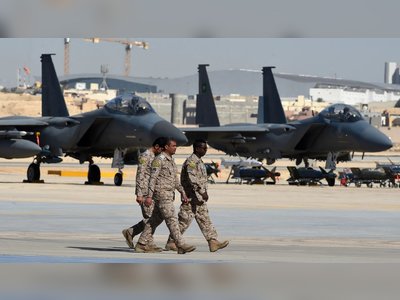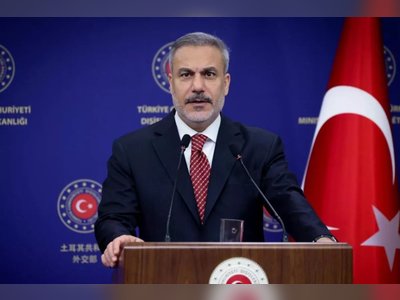Nation in Turmoil: Key Moments from Libya, Niger, Gaza, and a U.S. Assassination Plot
Libya's turmoil highlighted by trafficker's death; U.S. adjusts troop presence in Niger; Gaza sees escalating conflict with new ceasefire efforts.
In Libya, the death of notorious human trafficker Abdel-Rahman Milad, alias "Bija," in Tripoli on September 1, casts a stark light on the nation's tumultuous political environment, beset by rival militias and weak governance.
Meanwhile, the United States has completed its troop withdrawal from Niger, retaining only a minimal presence to protect its embassy, marking a significant shift as Niger aligns more closely with Russian military support.
Shifting focus to Gaza, Hamas leader Yahya Sinwar declared readiness for an extended battle against Israeli forces, stressing coordinated regional efforts, amidst escalating violence and Israeli Defense Minister Yoav Gallant's warnings about a diminished chance for a ceasefire.
In response, the U.S., Egypt, and Qatar are collaborating on a new Gaza ceasefire proposal, aiming to address hostage release concerns, though major obstacles and the lack of a set timeline underscore the complexities of the negotiations.
Adding to the urgency, UN Secretary-General Antonio Guterres condemned what he termed Israel's "collective punishment" of Palestinians, calling for an immediate ceasefire and highlighting the high civilian toll and the ongoing stalemate in achieving a two-state solution.
On a different note, Ryan Wesley Routh from Hawaii was arrested for an alleged assassination plot against former President Donald Trump with an AK-47, a shocking event that underscores the unpredictable threats posed by individuals with a history of extremism and criminal behavior.
Meanwhile, the United States has completed its troop withdrawal from Niger, retaining only a minimal presence to protect its embassy, marking a significant shift as Niger aligns more closely with Russian military support.
Shifting focus to Gaza, Hamas leader Yahya Sinwar declared readiness for an extended battle against Israeli forces, stressing coordinated regional efforts, amidst escalating violence and Israeli Defense Minister Yoav Gallant's warnings about a diminished chance for a ceasefire.
In response, the U.S., Egypt, and Qatar are collaborating on a new Gaza ceasefire proposal, aiming to address hostage release concerns, though major obstacles and the lack of a set timeline underscore the complexities of the negotiations.
Adding to the urgency, UN Secretary-General Antonio Guterres condemned what he termed Israel's "collective punishment" of Palestinians, calling for an immediate ceasefire and highlighting the high civilian toll and the ongoing stalemate in achieving a two-state solution.
On a different note, Ryan Wesley Routh from Hawaii was arrested for an alleged assassination plot against former President Donald Trump with an AK-47, a shocking event that underscores the unpredictable threats posed by individuals with a history of extremism and criminal behavior.











